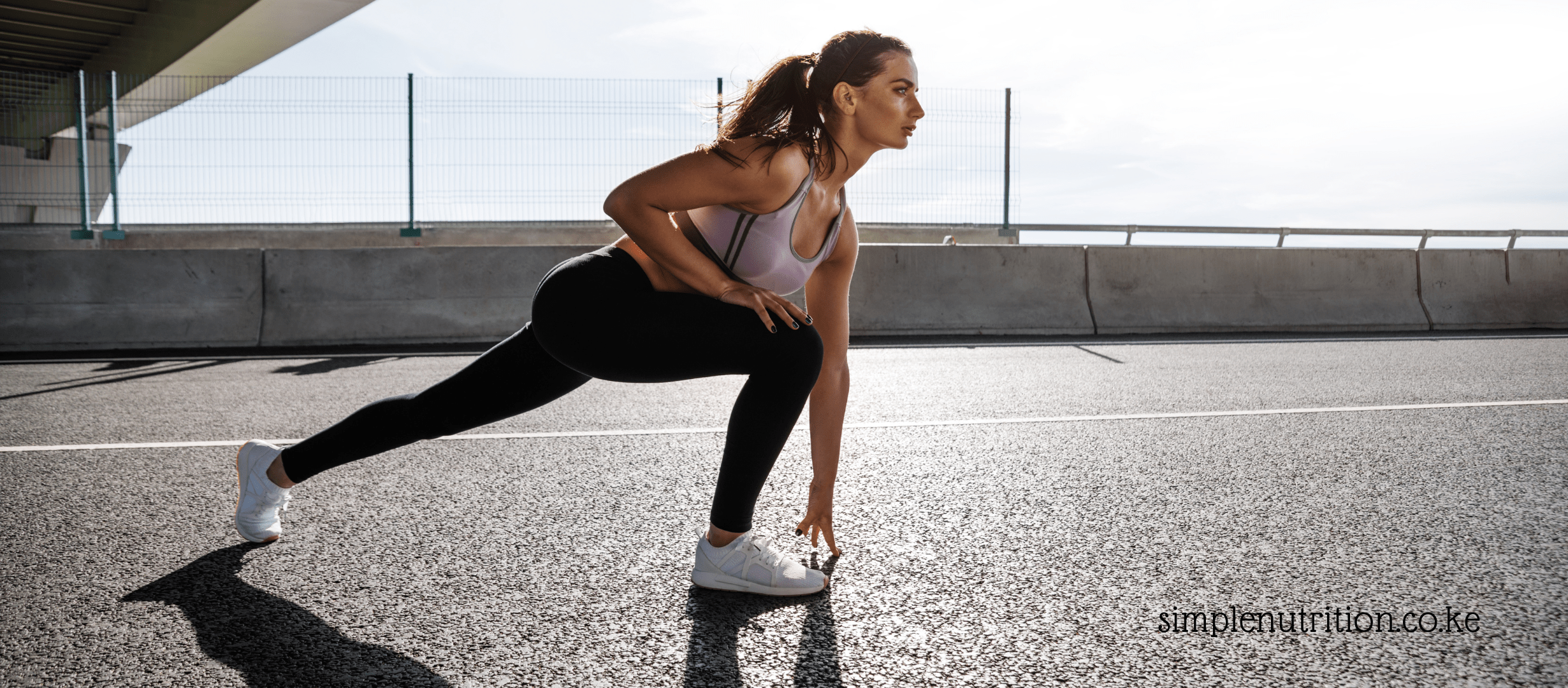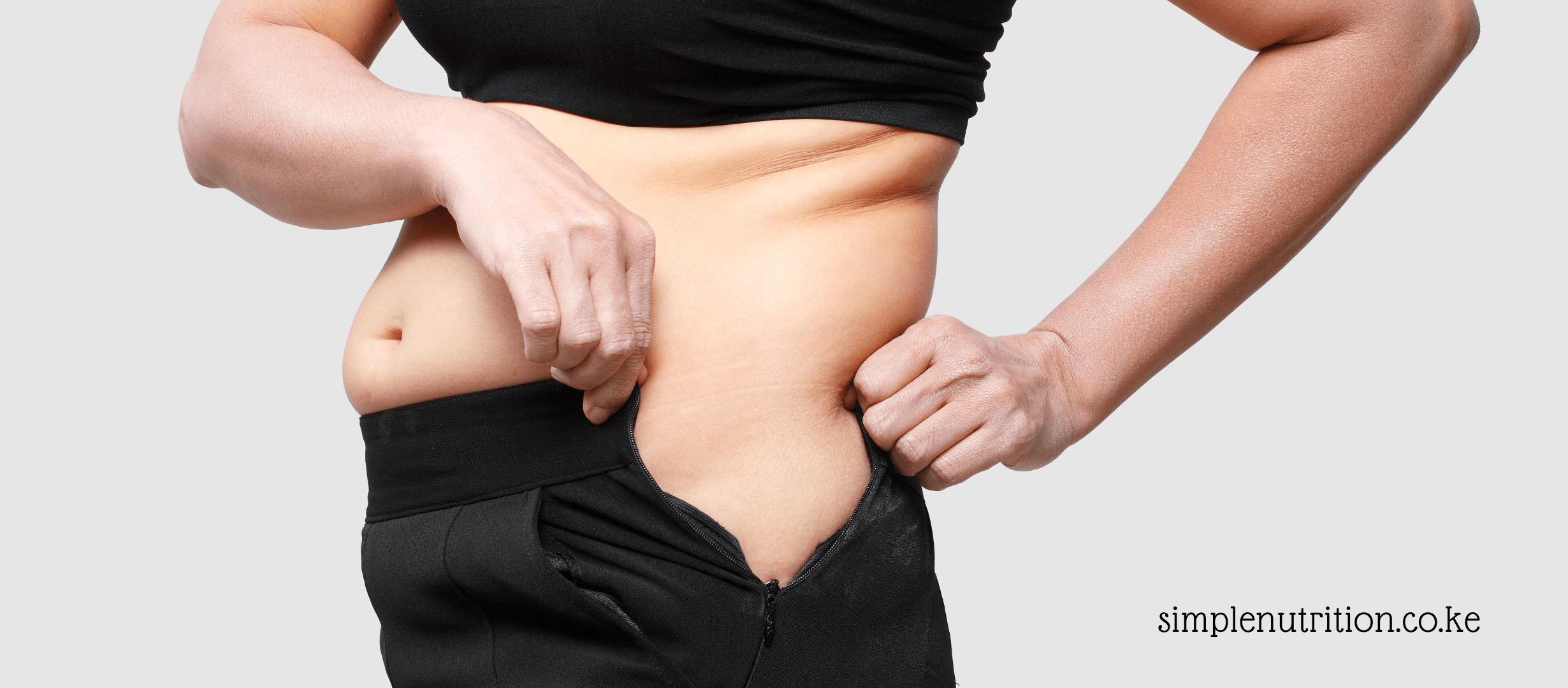Women, just like men, benefit from a balanced protein intake. Proteins are important for muscle maintenance, immune function, and hormonal balance.
Adequate protein consumption can also support weight management by promoting satiety. Additionally, during certain life stages such as pregnancy, breastfeeding, or menopause, protein needs may increase to support specific physiological demands.
Protein and weight management
Including an adequate amount of protein in your diet can be beneficial for weight management. Protein helps increase satiety, making you feel full and satisfied, which can contribute to reduced overall calorie intake.
Moreover, protein requires more energy for digestion compared to fats or carbohydrates, leading to a slightly higher calorie expenditure, known as the thermic effect of food.
Additionally, a higher protein intake is associated with the preservation of lean muscle mass during weight loss. This is important because retaining muscle can help maintain a higher metabolism, making it easier to sustain weight loss over time.
Incorporating lean protein sources, such as poultry, fish, beans, and tofu, into your meals can contribute to a well-rounded and satisfying diet that supports your weight management goals.
Protein intake and pregnancy
Protein is important during pregnancy as it plays a vital role in the development of the baby’s tissues and organs. It is recommended that pregnant women increase their protein intake to support the growing needs of both the mother and the developing fetus.
Protein is essential for the formation of the baby’s organs, muscles, and tissues, especially during the second and third trimesters when rapid growth occurs. Adequate protein intake also helps in maintaining the mother’s blood volume and supporting the growth of the placenta.
Good sources of protein for pregnant women include lean meats, poultry, fish, eggs, dairy products, legumes, and plant-based protein sources like tofu and quinoa. It’s essential for pregnant women to consult with their healthcare provider to determine their specific protein needs based on individual health conditions and dietary preferences.
Protein and diabetes management
Including an appropriate amount of protein in your diet can be beneficial for managing diabetes. Here are a few ways protein can impact diabetes management:
- Blood Sugar Control: Protein-rich foods generally have a lower impact on blood sugar levels compared to carbohydrates. Including protein in meals can help stabilize blood sugar levels, preventing rapid spikes.
- Satiety and Weight Management: Protein has a satiating effect, making you feel full for a longer time. This can be helpful for weight management, as maintaining a healthy weight is important for individuals with diabetes.
- Muscle Maintenance: Protein is essential for maintaining muscle mass. People with diabetes can benefit from incorporating protein into their diet to support muscle health, which can contribute to improved insulin sensitivity.
It’s important to choose lean protein sources, such as poultry, fish, tofu, legumes, and low-fat dairy products.
Additionally, it’s advisable for individuals with diabetes to work with healthcare professionals, including a registered dietitian, to create a personalized nutrition plan that meets their specific needs and helps manage blood sugar levels effectively.
Protein intake and breastfeeding
Adequate protein intake is important for breastfeeding women as it supports the mother’s health and contributes to the nutritional needs of both the mother and the nursing baby.
- Maternal Health: Protein is essential for the mother’s overall health, including maintaining muscle mass and supporting the postpartum recovery.
- Breast Milk Production: Breast milk contains proteins, and a breastfeeding mother needs extra protein to support the production of quality milk. Ensuring an adequate protein intake can contribute to the nutritional content of breast milk.
- Energy Requirements: Breastfeeding mothers often have increased energy needs, and protein can help provide sustained energy, aiding in meeting these demands.
Good sources of protein for breastfeeding women include lean meats, poultry, fish, eggs, dairy products, legumes, nuts, and seeds.
Breastfeeding mothers need to stay hydrated and maintain a balanced diet to support both their health and the nutritional needs of their baby.
Protein intake and PCOS
For individuals with Polycystic Ovary Syndrome (PCOS), maintaining a balanced and nutrient-rich diet, including appropriate protein intake, is important. Here’s how protein can be relevant in managing PCOS:
- Insulin Sensitivity: PCOS is often associated with insulin resistance. Including protein in meals can help regulate blood sugar levels and improve insulin sensitivity, which is beneficial for managing PCOS symptoms.
- Weight Management: Protein-rich foods can contribute to feelings of fullness and satiety. This can aid in weight management, which is crucial for individuals with PCOS, as excess weight can exacerbate symptoms.
- Hormonal Balance: Proteins play a role in the synthesis and balance of hormones. A balanced hormonal environment is essential for managing PCOS symptoms, including irregular periods and fertility issues.
Good protein sources for individuals with PCOS include lean meats, fish, eggs, dairy products, legumes, nuts, and seeds.
It’s advisable for those with PCOS to work with healthcare professionals, including a registered dietitian, to develop a personalized diet plan that addresses their specific needs and supports overall health.
How much protein do women need?
The recommended daily protein intake for women can vary based on factors such as age, activity level, and overall health. In general, the Dietary Guidelines for Americans suggest that adults aim for a daily protein intake that represents 10-35% of total daily calories.
As a more specific guideline, the Recommended Dietary Allowance (RDA) for protein for the average adult woman is 46 grams per day. However, individual protein needs can differ. Athletes, pregnant or breastfeeding women, and those with certain medical conditions may require higher protein intake.
What are the best ?sources of protein?
Several foods are excellent sources of protein. Here are some common and nutritious options:
- Lean Meats: Chicken, turkey, lean beef, pork, and other meats are rich sources of high-quality protein.
- Fish: Salmon, tuna, trout, and other fatty fish provide protein along with omega-3 fatty acids, which offer additional health benefits.
- Eggs: Eggs are a versatile protein source, containing essential amino acids.
- Dairy yoghurtts: Milk, yogurt, and cheese are good sources of protein, as well as calcium and other nutrients.
- Legumes: Beans, lentils, chickpeas, and peas are plant-based sources of protein, fiber, and various vitamins.
- Tofu : These soy-based products are rich in protein and suitable for vegetarians and vegans.
- Nuts and Seeds: Almonds, peanuts, chia seeds, and pumpkin seeds are protein-packed options with added healthy fats.
- Quinoa: A whole grain that contains all essential amino acids, making it a complete protein source.
- Greek Yogurt: Higher in protein compared to regular yogurt, Greek yogurt is a tasty dairy option.
Incorporating a variety of these foods into your diet helps ensure a well-rounded intake of essential amino acids and other nutrients. Individual dietary needs may vary, so it’s advisable to consult with a healthcare professional or a registered dietitian for personalized recommendations.
Discover more from Simple Nutrition
Subscribe to get the latest posts sent to your email.






